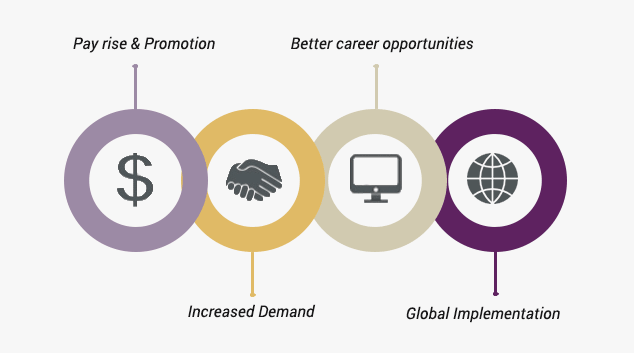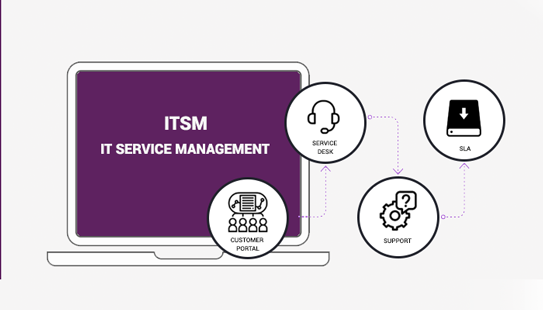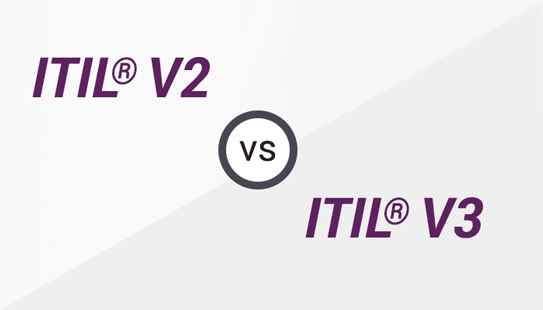
ITIL® Certified Professional will get following benefits from our training:
A Certification facilitates a pay rise and promotion to higher positions. The Payscale.com’s report states that ITIL®-skilled professionals are highest-paid professionals in the IT industry.
Following are some main features of ITIL® that contribute to the growing demand of this framework:
IT operations and activities need an implementation of ITIL® framework at a greater scale. It is proven that this framework is better than other when it comes to effectiveness and efficiency. It makes the tasks easier and faster to produce better results.
Professional will get familiarised with the terms, phrases and methods for conveying information that are common norms among IT professionals. It differentiates certified professionals from the non-certified ones. By using the right teams, one not only can communicate the right idea within the team but also can save the time on wrongly directed functions or activities.
ITIL® closely comply with ISO/IEC 20000 standards. This is one of the most popular
frameworks for project management, and its popularity is not going to drop in future. Around 800 organisations are ISO/IEC 20000 certified which is very little, and demand for ITIL® Certified professionals will remain high.
Professionals holding ITIL® certification have a good chance of being recognised as potential employees. In the field of process management, service management, release management, project management and incident management, the demand for ITIL® professionals is very high.
The number of organisations implementing ITIL® Framework for project management is increasing. This certification gives the edge to the delegates to become capable of best jobs. Certified candidates can make their career choice on their own rather than wasting their precious time on roles that do not fit to their profiles. In addition, the candidates will have the ability to choose their desired role and organisation instead of waiting for recruiters to shortlist them.
Around 10,000 companies and organisations around the globe make use of ITIL® Framework. This helps candidates to work anywhere in the world. For a certified ITIL® professional, there is no shortage of jobs.
There are numerous benefits of this certification, and it has essential also. Getting certified in the different stages of ITIL® will help professionals in any aspect of IT sector. Progress in your IT career.

The ITIL® credential confirms the validity of an individual's level of knowledge about ITIL® (Information Technology Infrastructure Library) and ITSM (IT service management) to potential employers. As ITIL® frameworks are used in most of the organisations, it will provide substantial opportunity to fulfil your career objectives, improve your financial stature, and increase prospects of promotion.

What is meant by Service?
The means of delivering value to customers by achieving desired results or outcomes are known as Services.
Difference between Service and Product
|
Services |
Products |
|
Services are not tangible |
Products are tangible |
|
They are produced and consumed at same time |
They are not |
|
They are inconsistent |
They are consistent |
|
The user participates in the service production |
The user doesn’t participate in the product production |
Service Management
Service Management includes all aspects of the management of the delivery of IT services within the organisation. Service Management contains all organisational capabilities that are needed for the generation of added value to the customers as a service.
Aim of Service Management
Achieving Service Management
Following are some key activities needed to be performed for achieving business and customer satisfaction:

ITIL® V2 and V3 have certain subtle differences among them. First of all ITIL® V3 introduces a decisive shift towards a service driven lifestyle and guiding principles that are prescriptive in nature. While ITIL® V2 focuses on the service produced by the organisation, the process of producing and individuals who are using it, ITIL® V3 focuses on the partner also which is included in the project. Further ITIL® V2 is process oriented approach whereas ITIL® V3 is the lifecycle-based approach. In the case of V2 Service Management is a part of Evaluation but in V3 it is a separate process. Version 2 emphasises on service design and service strategy while ITIL® V3 pays equal attention to all processes of the service lifecycle. There are 10 processes and 2 functions in ITIL® V2 and in ITIL® V3 there are 26 processes and 4 functions.
Following are some more differences among versions of ITIL®:
|
ITIL® V2 |
ITIL® V3 |
|
Change Value Management |
Value Service Desk Integration |
|
Alignment |
Integration |
|
Linear Services Catalogues |
Dynamic Service Portfolios |
|
Collection of Integrated Processes |
Service Management Lifecycle |